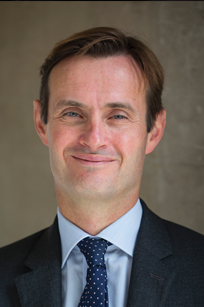Trusts call for short-term solution to capital problem

In May, NHS England and NHS Improvement chief financial officer Julian Kelly (pictured) said initial planned expenditure was greater than the Department of Health and Social Care’s capital spending limit. He wrote to providers warning that this ‘would lead to the NHS unacceptably breaching its capital spending limit’.
NHS Providers chief executive Chris Hopson told Healthcare Finance that the capital funding gap was compounded by a mismatch between areas of likely need and those where funding was available – prior-year deficits will limit the funds that trusts have available for capital investment, for example.
Backlog maintenance was now at almost £6bn, which must be dealt with. But trusts also needed capital to address patient and quality concerns and invest in new services and facilities to meet demand and NHS long-term plan commitments.
Immediate action was needed for 2019/20. ‘We’ll need a quick, short-term, solution to this issue alongside the longer-term work required,’ said Mr Hopson. ‘It’s vital that any solution is fully co-designed with providers and is not imposed on trusts from above. We are talking to NHS England and NHS Improvement about the best way of achieving this. But we all need to recognise this is a significant problem that has been building for several years and is now coming to a head.’
He continued: ‘Trusts need three things: the government needs to set the right capital limits; make the right amount of actual funding available; and ensure a clear, transparent, rapid and easy-to-use system for accessing, prioritising and approving capital expenditure. Trusts tell us that all three aren’t right at the moment and that they need more help and support, particularly in the forthcoming spending review.’
Mr Kelly said NHS England and NHS Improvement wanted to avoid imposing a top-down restriction on capital plans. Instead, there would be a ‘more planned, proactive and collaborative approach’ to spending on capital.
As a first step, providers were asked to work with their regional teams to review their plans, which were resubmitted by mid-May.
He insisted the new plans should include only ‘absolutely urgent and critical expenditure’, and trusts should consider deferring projects.
Although he hoped the reviews would significantly close the gap, he acknowledged that it was so large that further work would be likely. If that is the case, he would consult with providers before potentially asking them to work together across sustainability and transformation partnerships to prioritise the most urgent local schemes.
‘We need this approach to work, and at rapid pace. If necessary, further information on this will be set out in due course. We will also consider whether, on the basis of your revised capital plans, further short-term in-year control measures are necessary,’ Mr Kelly said.
Trusts should not begin spending on capital schemes until the process is completed, and funding is secured or a business case approved.
NHS England and NHS Improvement will work with trusts and other stakeholders over the coming months to develop a long-term capital and cash support regime.
• An HFMA briefing, NHS capital: a system in distress, last year called for a new capital system to be open and transparent, supported by clear guidance. Greater understanding of the different responsibilities and duties given to each organisation would support collaboration, it said.
Related content
We are excited to bring you a fun packed Eastern Branch Conference in 2025 over three days.
This event is for those that will benefit from an overview of costing in the NHS or those new to costing and will cover why we cost and the processes.